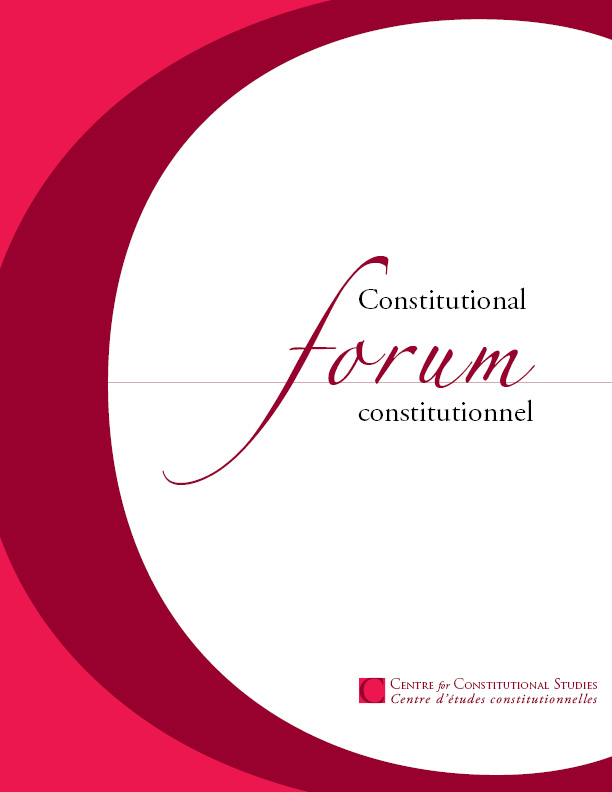The Toronto Municipal Election: Judicial Failure to Protect the Structure of the Canadian Constitution
DOI:
https://doi.org/10.21991/cf29404Abstract
In Toronto (City) v Ontario (AG),1 a recent decision on the legality of legislative interference in the Toronto 2018 municipal election, the Ontario Court of Appeal makes an alarming attempt to rewrite the Canadian Constitution. The subject of this revision is the legitimate role of unwritten principles in constitutional interpretation. Robin Elliot maintains, in a leading scholarly treatment of the subject, that unwritten principles can inform constitutional interpretation in two main ways: first, they can provide an independent basis on which to overrule impugned legislation; second, they can assist in interpreting constitutional text.2 Elliot qualifies the former usage by limiting it to those principles that “can fairly be said to arise by necessary implication from provisions of the text of the Constitution … since they have the same legal status as the text.”3 The Court of Appeal, however, states that unwritten principles cannot be used as a stand-alone basis on which to overrule legislation.4
In this article, I draw on numerous Supreme Court of Canada decisions to argue that the Ontario Court of Appeal’s view of the Constitution is, with respect, fundamentally flawed. Unwritten principles inform the structure of a democratic constitution and thereby provide legislation with its claim to legitimacy. Legislation that violates foundational unwritten principles is, of necessity, subject to judicial challenge. I also argue that the Court of Appeal’s doctrinally unsustainable approach to unwritten principles led to a flawed ruling on the legality of Ontario’s interference in the 2018 Toronto election. In Reference re Senate Reform, the Supreme Court of Canada unanimously states that “constitutional interpretation must be informed by the foundational principles of the Constitution.”5 The Court of Appeal failed to provide any detailed consideration of the democratic principle, and thereby failed to recognize the constitutional imperative that protects the integrity of the electoral process.
*PhD in Constitutional and Administrative Law, Queen’s University. Principal of Public Law Solutions, a research firm in Toronto.
[1] 2019 ONCA 732 [Toronto v Ontario (CA 2019)].
[2] “References, Structural Argumentation and the Organizing Principles of Canada’s Constitution” (2001) 80 Can Bar Rev 67 at 83-86, 141-42, and generally 86-98.
[3] Ibid at 95. See also 83-84.0
[4] Toronto v Ontario (CA 2019), supra note 1 at para 89.
[5] 2014 SCC 32 at para 25 [Senate Reference].
Downloads
Published
Issue
Section
License
Copyright (c) 2020 (Alyn) James Johnson

This work is licensed under a Creative Commons Attribution-NonCommercial-NoDerivatives 4.0 International License.
Authors who publish with Constitutional Forum constitutionnel grant the journal the right of first publication, and agree to license the work under an Attribution-NonCommercial-NoDerivs (CC BY-NC-ND) that allows others to share the work for non-commercial purposes, with an acknowledgement of the work's authorship and initial publication in this journal, as long as no changes are made to the original work. Please use this format to attribute this work to Constitutional Forum constitutionnel:
"First published as: Title of Article, Contributor, Constitutional Forum constitutionnel Volume/Issue, Copyright © [year], Publisher"





